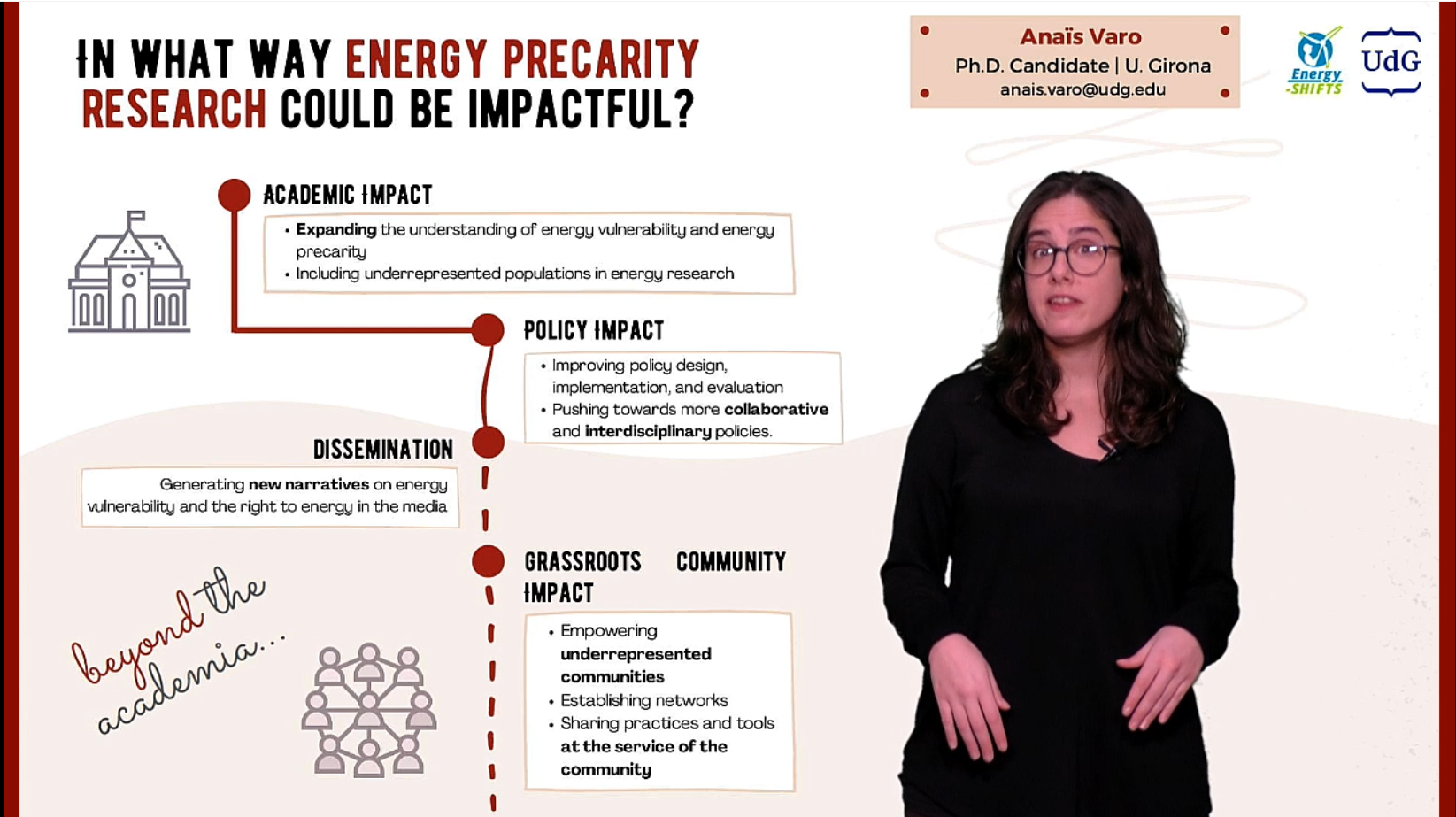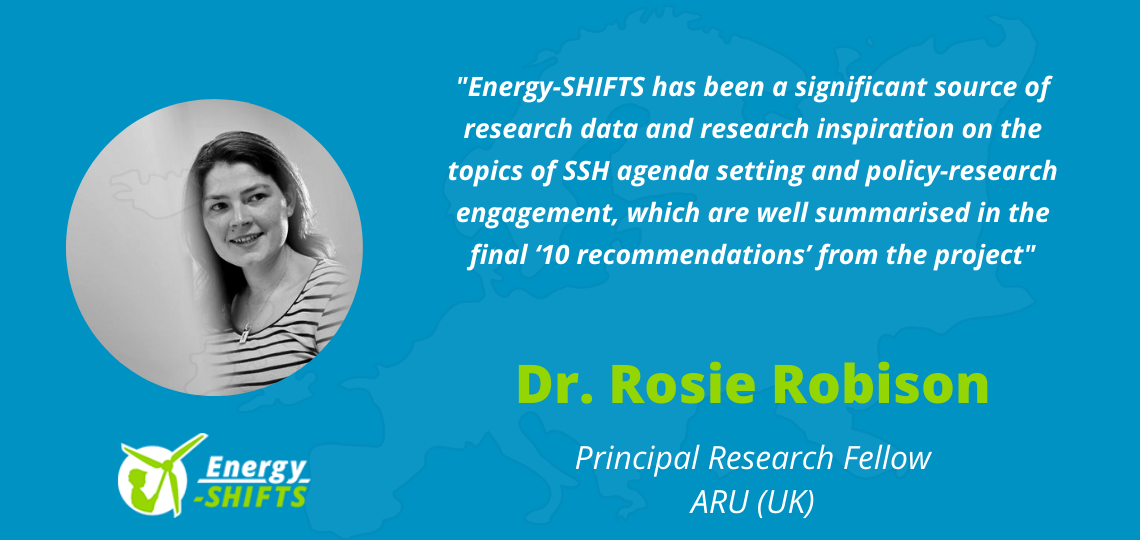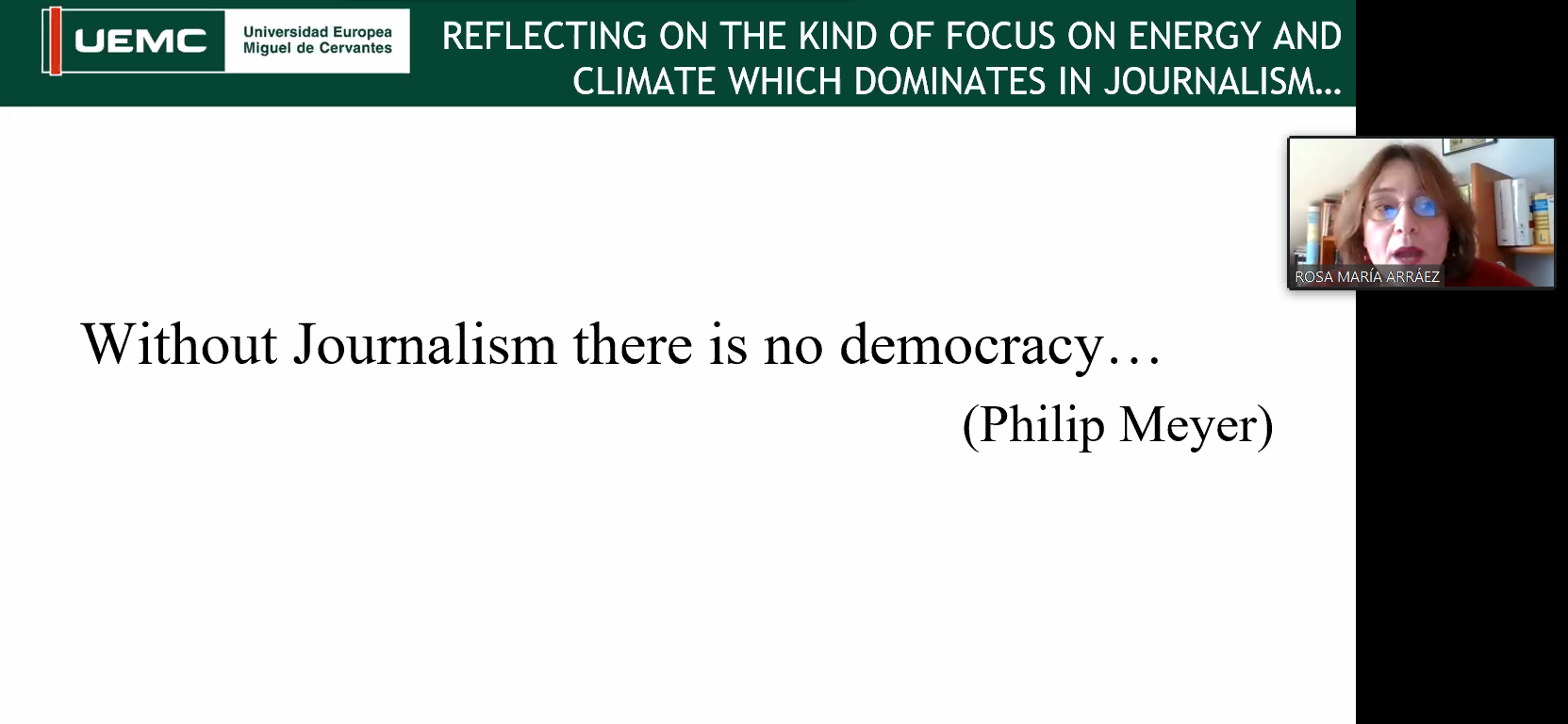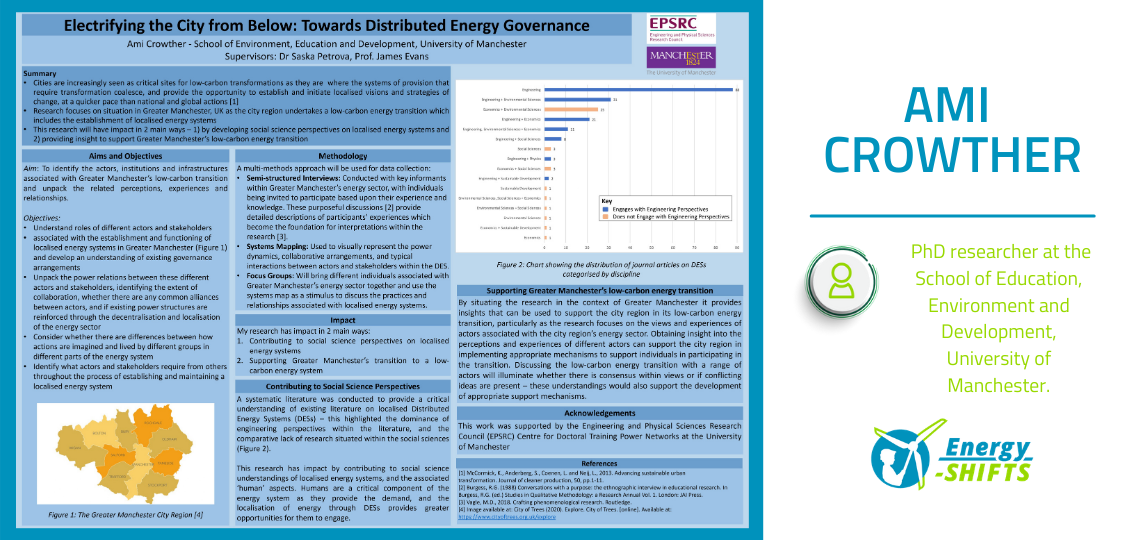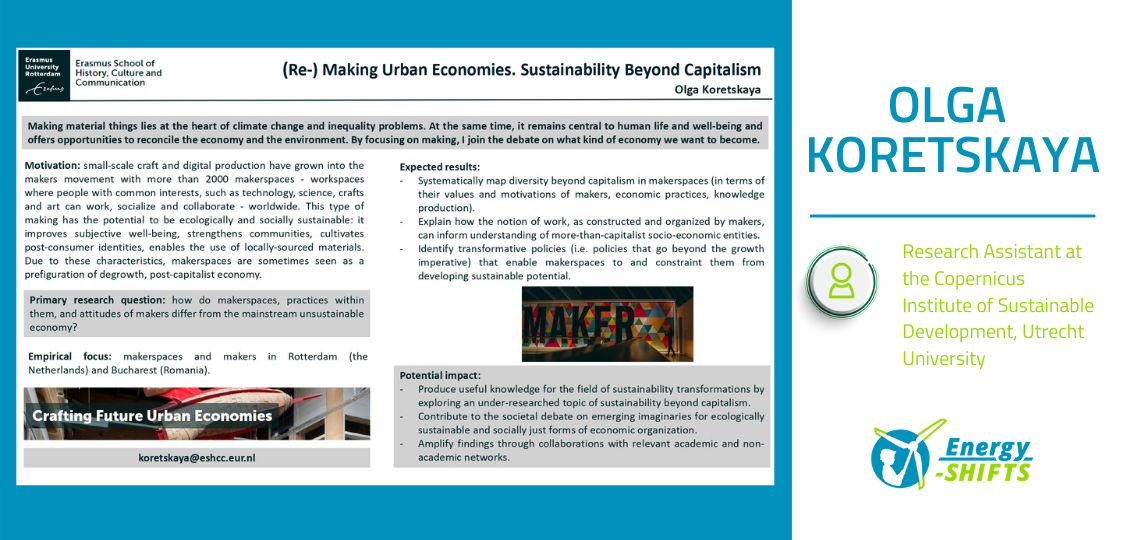In this blogpost Anaïs Varo, PhD candidate at University of Girona explains, based on her research, the impact of energy precarity research from academic, policy and dissemination impact
My research is focus on energy precarity, understood as energy deprivation situations not often included in energy poverty phenomena, through intersectionality lens.
The more publicly recognized research impacts are the academic impacts, in form of publications and shared research among peers, and maybe the policy implications of the research. Nevertheless, there are two other impacts that are at the same time the most relevant and the most invisible. The first is the impact of knowledge dissemination, that can help to build new narratives in the media and public opinion that are vital to take forward more effective policies.
More important, we underline the grassroots community impact. This research aims not only to advance science at the academic level, but also to democratize science, disseminating the results to be useful at the local level. Research should help to empower underrepresented communities through the creation of networks and shared practices.

“I’m a critical interdisciplinary researcher interested in energy inequalities and energy democracy through the intersectionality theories lens. I’m currently based at the Political Science Area of the University of Girona (Spain).”

